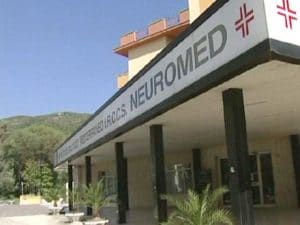
"Attention to state funding, adaptation of care settings and Lea (Essential Levels of Assistance) to an increasingly old population, efficiency of the production system of health services, incentives for research and attention to lifestyle". This is the 'recipe' for safeguarding the future of the National Health Service identified by the experts gathered on the occasion of the conference promoted by the Irccs Neuromed in
 Pozzilli, entitled "The health system and health protection in Italy today and in history", which was held today in the conference room of the Technology Park of the Molise Institute. During the meeting, the future prospects of the NHS in the context of current society were examined: starting from the history of hospital assistance and the level of health protection in our country, the conference examined all aspects of a complex and constantly evolving.
Pozzilli, entitled "The health system and health protection in Italy today and in history", which was held today in the conference room of the Technology Park of the Molise Institute. During the meeting, the future prospects of the NHS in the context of current society were examined: starting from the history of hospital assistance and the level of health protection in our country, the conference examined all aspects of a complex and constantly evolving.
“Our system has an ever greater need for health services, both due to the influence of the mass media and new technologies, without forgetting the scientific evolution of medicine which allows us to cope with disease and stay alive longer, with a consequent increase in pathologies linked to aging – commented to AdnKronos Salute Mario Morlacco, former sub commissioner for the recovery plan, member of the Panel of experts of the president of the Puglia Region – In a nation that is becoming increasingly elderly, where the population active is always less numerous than inactive, the problem of sustainability and financing becomes even more serious because we cannot assume and allow families to end up in a regime of poverty due to health expenditure. If the state wants to maintain the universalistic and supportive model, it must make this assessment”, underlines the expert.
“It should not be forgotten – continues Morlacco – that Italy already has an average health expenditure lower than the European one, a situation faced by an older population and in some areas characterized by conditions of deprivation. In the next 25 years – he observes – the percentage of over 65s will approach 30% (today we are just over 21%)”.
"However, the State alone is not enough", adds Morlacco: "It is necessary for the system to progressively adapt the care settings, creating strong filters for the territory, avoiding that recourse to the hospital is the only solution, in combination with a state intervention that guarantees a commitment of no less than 7% of GDP.  However - underlines the expert - there is one thing that each of us should never forget: the NHS guarantees a third of the population's health; more than a third is guaranteed by lifestyle. Each of us – says Morlacco – can be the architect of the sustainability of the near future. On the other hand, public institutions must pay attention to the determinants of health needs. The combination of these elements – says the expert – will be able to guarantee our future sustainability”.
However - underlines the expert - there is one thing that each of us should never forget: the NHS guarantees a third of the population's health; more than a third is guaranteed by lifestyle. Each of us – says Morlacco – can be the architect of the sustainability of the near future. On the other hand, public institutions must pay attention to the determinants of health needs. The combination of these elements – says the expert – will be able to guarantee our future sustainability”.
A sustainability that necessarily passes through the potential of research and medical progress: "International statistics say that where good clinical research is done, the average length of hospitalization of a patient is shorter and more effective - reiterated Luigi Frati, scientific director of Irccs Neuromed Pozzilli – Good research means good assistance and cost reduction, and this issue affects both medical faculties and the network of 49 Irccs managed by the Ministry of Health which improve the quality of services for citizens, containing costs".
Better conditions for citizens cannot, therefore, disregard investments in the field of research: "In these times of crisis in which funds have decreased, or in any case not increased compared to what would be necessary for the community, the Ministry of Health has made enormous efforts to compete in the world and finance the research of the Irccs - highlights Frati - A sufficient effort on a substantial level, but important because it has made it possible to maintain basic research and its clinical applications. This is demonstrated by the increase in the number of publications and above all by the quality of the same, which make us sufficiently competitive in the European context, even if we would like to do much more”, he concludes.
Posted on: 01/26/2018 from Adnkronos
Related news: National health system, is the Italian one really among the best in the world?





